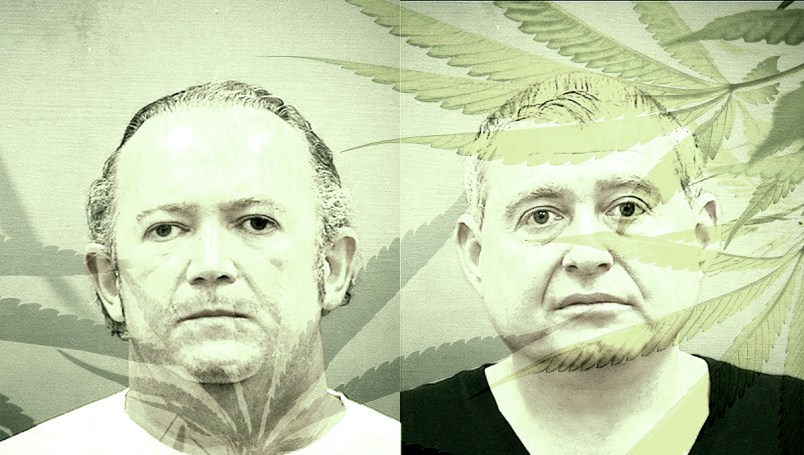Before Rudy Giuliani associates Lev Parnas and Igor Fruman were trying to manipulate U.S.-Ukrainian politics to aid President Trump in 2020, they made time for a little side venture to allegedly rake in some green.
According to the explosive indictment dropped Thursday, the two, plus businessmen David Correia and Andrey Kukushkin, allegedly funneled money from an unnamed foreign national to candidates for political office in Nevada who could change state laws about recreational marijuana licensing. The group intended to set up a recreational marijuana business and wanted to change licensing laws in multiple states to build the weed empire.
They wanted to conceal the identity of the foreign funder due to what Kukushkin allegedly described as “his Russian roots and current political paranoia about it,” per the indictment.
According to state election records, Fruman made donations to Nevada state candidates Adam Paul Laxalt and Wesley Karl Duncan, both Republicans. Laxalt, who received $10,000 from Fruman, ran unsuccessfully for governor of Nevada in 2018. Duncan, the recipient of another $10,000 donation, lost his 2018 election to be Attorney General of Nevada.

The gang allegedly planned to implement their scheme in both New York and Nevada and Correia drew up a table in September or October 2018 to estimate the amount of money they’d need to make inroads with the various state and federal political candidates. They calculated that to execute a “multi-state license strategy,” they would need between $1 and $2 million. The foreign funder wired two $500,000 deposits to a U.S. bank account controlled by Fruman and another unnamed individual, one on September 18 and one on October 16.
However, according to the indictment, the crew overlooked one small detail in their pot plot: the licensing application deadline in Nevada was back in September. By the point they started to put their plan into action, they were two months too late. The indictment alleges that they “did not timely apply for a recreational marijuana license in September 2018, the then-deadline for such applications in Nevada.”
On October 25, Kukushkin told the group that it looked like they were “2 months too late to the game unless we change the rules.” They would need to persuade a “particular Nevada State official,” in the indictment’s words, to give the “green light to implement this.”
The donations to Laxalt and Duncan, $10,000 each and made in Fruman’s name, were logged by the Nevada Secretary of State’s office on November 1, 2018.
Though the group allegedly continued to discuss the scheme into the Spring, the venture never came to fruition.
Soon after, Parnas and Fruman were traipsing around Kyiv as Giuliani tried to convince Ukrainians to manufacturing dirt on the Bidens and cast doubt on the origins of the U.S. investigation into election meddling in 2016. The President’s role in that effort has prompted Congress’ impeachment inquiry.
The two also funneled money to an unnamed congressman, suspected to be former Rep. Pete Sessions (R-TX), who they hoped could help get rid of the Ukrainian ambassador and further Giuliani’s efforts.
Parnas and Fruman, alongside Correia and Kukushkin, were charged by prosecutors from the Southern District of New York on two counts of conspiracy, false statements to the FEC and falsifying records.
They are due in federal court in Virginia on Thursday.



